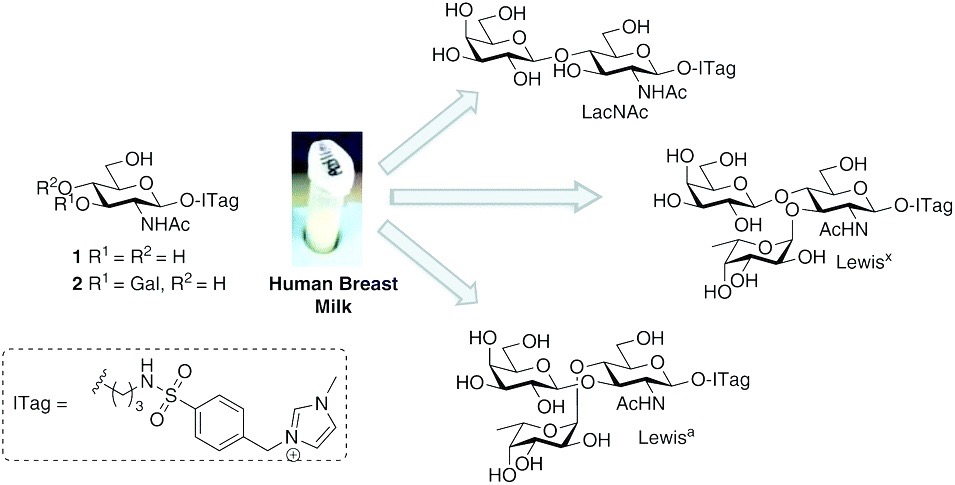Synthetic oligosaccharides and glycoconjugates are being increasingly used to solve important problems within biological research for vaccine development and drug discovery purposes. However, due to their complicated isolation and characterization from biological fluids, as well as a lack of general and efficient protocols for their preparation, progress within the field has been limited.
A recent OBC publication from Prof. Carmen Galan of the University of Bristol seeks to overcome this longstanding challenge using imidazolium-labeled (ITag) glycosides. Ionic liquid-based labels are emerging as a new class of covalent chemical labels that provide a unique handle for facile identification and purification of substrates from complex reaction mixtures using mass spectroscopy.
It was hypothesised that the ITag-glycan probes could be used to harness the natural biosynthetic machinery present in human breastmilk (i.e. glycosyltransferases) to access biologically important oligosaccharides. This study circumvents lengthy and costly chemical syntheses as well as the need to isolate a specific enzyme which can be challenging to express and applicable only to small-scale production.
In a matter of days, the group was able to access a series of highly desirable oligosaccharides, including LacNAc-ITag, ITag-Lewisx and ITAg-Lewisa through incubation of a labelled glycoside in readily sourced human breast milk. The capability of ITag to aid in the synthesis of oligosaccharides from a complex, multi-enzyme environment is pivotal. This technology could revolutionize the way in which synthetic, enzymatic transformations are carried out and has the potential to expand outside of carbohydrate chemistry.
To find out more see:
Imidazolium-labeled glycosides as probes to harness glycosyltransferase activity in human breast milk
I. Sittel and M. C. Galan
DOI: 10.1039/C7OB00550D
Victoria Corless is currently completing her Ph.D. in organic chemistry with Prof. Andrei Yudin at The University of Toronto. Her research is centred on the synthesis of kinetically amphoteric molecules which offer a versatile platform for the development of chemoselective transformations with particular emphasis on creating novel biologically active molecules.











